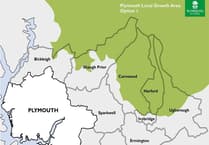The Royal Mint has issued a series of commemorative coins in honour of the life and legacy of one of Britain’s greatest minds - former Totnes student, the computer pioneer Charles Babbage.
Released on the 150th anniversary of the death of the influential scientist, the 50 pence coins is the fourth in the Royal Mint’s Innovation of Science series, which also honours theoretical physicist Stephen Hawking, DNA researcher Rosalind Frankling and TV inventor John Logie Baird.
Charles Babbage (1791 – 1871) was a revolutionary thinker who possessed astonishing foresight and intellect and believed that scientific advancement should benefit everyone.
His mechanical calculators helped to bring about the conceptual leap to modern computing.
Although born in London, Charles Babbage came from an old Devon family – his grandfather, Benjamin Babbage, was the Mayor of Totnes in 1754 – and was once a student at the former King Edward VI Grammar School for Boys in the town.
Totnes Museum has a room dedicated to the town’s famous son, which houses an exhibition highlighting Babbage’s many inventive ideas.
Museum manager, Christian Morris, said: “Charles Babbage’s role within Totnes should not be underestimated and we are proud to tell his story at Totnes Museum.
“Being born to parents who both came from families long established in the Totnes area and spending a brief but formative time at Totnes Grammar School his legacy today was shaped by the town and his experiences in South Devon.
“Celebrated today for his ‘Difference Engine’ and planned ‘Analytical Engine’ his work foreshadowed the modern computer, while many of his other ideas led to developments during his life and beyond.
“These included an advocation for a universal postal rate later implemented as the first stamps, railway innovations including the cowcatcher and a ‘black box’ device for analysing the causes of accidents, a prototype submarine, and the ophthalmoscope for medical inspection of the inside of the eye.
“The minting of a ceremonial coin shows the lasting fascination and celebration of this unique character still today.
“This started early with the preservation of his brain upon death which is still held by the Hunterian Museum at the Royal College of Surgeons, to more recent examples such as the Family Fortunes television show answer board being named Mr Babbage after this public figure from more than 100 years before.
“The minting of a coin reflects this ongoing ability for the life and work of Charles Babbage to fascinate and generate pride of his legacy across Britain, and this is only amplified when looking at what he means to the history and people of Totnes.”
Although Babbage is best known for his calculating engines, he was a lifelong inventor who was active in many fields.


-with-Winnie-Maina-(joint-store-director).jpeg?width=209&height=140&crop=209:145,smart&quality=75)


This article has no comments yet. Be the first to leave a comment.